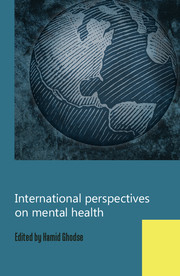Malawi
from Africa
Published online by Cambridge University Press: 02 January 2018
Summary
Malawi is a country with an approximate area of 118 000 km2. Its population is estimated at 13 million and the gender ratio (men per hundred women) is 98. The proportion of the population under the age of 15 years is 47% and the proportion above the age of 60 years is 5%. The literacy rate is 75.5% for men and 48.7% for women (World Health Organization, 2005).
For administrative purposes, Malawi is divided into three regions, which are further divided into a total of 28 districts. The capital city is Lilongwe, which is situated in the central region, and the main means of travel between the capital and districts is by road.
The main languages used in Malawi are English and Chichewa. The largest ethnic group is Chewa and the other ethnic groups are Nyanja, Tumbuka, Yao, Nkhonde and Ngoni plus the Europeans, Indians and other foreign nationals. The largest religious groups are Christians followed by Muslims.
Health indicators
Malawi has high rates of infant and maternal mortality rates. The life expectancy at birth is 40 years for both males and females (National Statistical Office of Malawi).
Health services
There are very few doctors. Clinical officers, medical assistants and enrolled nurses comprise the backbone of Malawian healthcare, but there are shortages of these health personnel, especially in the rural areas, as people prefer to practise in urban areas.
The smallest health unit in Malawi is the ‘health post’, which is manned by ‘health surveillance assistants’ (who have 10 weeks’ orientation training). Each health post serves a small number of villages. Next in the referral hierarchy is the health centre, which is usually staffed by medical assistants (who have 2 years’ training) and nurses. Patients who cannot be treated at the health centre are referred to the district hospitals, which are present in all but 3 of the 28 districts. There are four general tertiary referral hospitals, distributed in all three regions of Malawi, with two in the southern region, which is the biggest.
Mental health resources and services
Zomba Mental Hospital, which is situated in the southern region, is the only government tertiary psychiatric referral hospital in Malawi. It has 333 beds and on average admits 1500 patients per year.
- Type
- Chapter
- Information
- International Perspectives on Mental Health , pp. 26 - 30Publisher: Royal College of PsychiatristsPrint publication year: 2011



